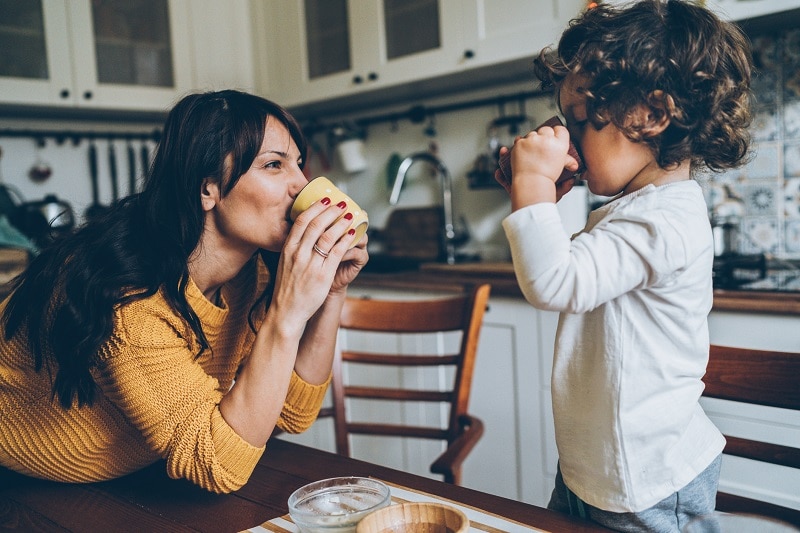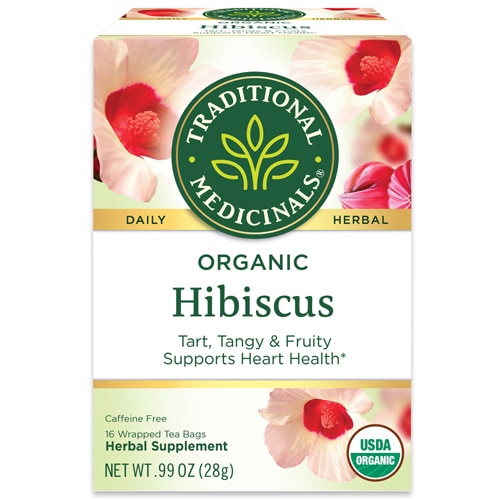[vc_row][vc_column][vc_column_text]Billions of people drink tea, the world’s most popular beverage after water. It’s been a staple in global diets for centuries. But is tea safe for the more than 2 billion children on our planet?

Can Toddlers Drink Tea? What About Older Children?
New research suggests that children 4 years old and above should drink caffeinated
black and
green tea in childhood and into adulthood to enjoy the many documented health benefits. Meanwhile, non-caffeinated
herbal tea can be a healthy alternative to sugary drinks for children who are at least 2 years old, some experts say. But for a child under 2, neither caffeinated nor herbal tea is recommended.
For its part, the American Academy of Pediatrics discourages consumption of caffeinated tea (and almost all other caffeinated beverages) before age 12 due to its effects on blood pressure and heart rates. For those 12 to 18 years old, the academy recommends limiting caffeine consumption to 100 milligrams a day.
The health benefits of tea for kids
A
research review published in 2021 in the peer-reviewed journal Nutritional and Food Technology suggests that consumption of tea by kids 4 and older holds the potential to promote health and wellness, especially if sugar isn’t added. (The trade group representing United Kingdom’s tea industry financially supported this research.)
Among the possible advantages of tea consumption by kids 4 years old and above are improvement of:
Drinking sugar-free tea also might help reduce obesity, which can lead to health complications such as type 2 diabetes, heart disease, strokes, kidney disease, nerve damage, digestive problems, sleep apnea and certain types of cancer.
Roughly one-fifth of Americans from 2 to 19 years old are considered obese.
Why is tea so beneficial?
What is it that makes tea such a health-boosting powerhouse? Tea is one of the primary sources of
flavonoids, which help combat certain health issues. The key benefit of flavonoids is their ability to fight inflammation and cell damage.
“All the evidence on tea means that drinking three to four cups of tea a day — as many of us already do — could benefit children and teenagers needing to complete homework, working adults trying to destress or focus on complex tasks and retired adults who want to retain optimal brain health as they age,” British dietitian Carrie Ruxton says in a
news release from the United Kingdom’s industry-backed Tea Advisory Council.
Which kids should not drink tea?
Experts generally recommend not letting children drink any type of tea before they’re 6 months old. From that point until age 2, it should be OK to allow a child to drink caffeine-free herbal tea, as long as it’s done in moderation.
Once it’s alright to serve caffeinated tea to your child, the tea should be relatively weak,
according to the Art of Tea website. Too much caffeine can overstimulate a young person’s nervous system, contributing to problems like headaches, insomnia, dizziness, nervousness and restlessness.
“Tea gets stronger the more you use and longer it steeps, so you can minimize any potential undesired effects by using fewer leaves and keeping steep times short,” the Art of Tea says. “Be sure to give it a taste before passing it along to your little ones, and if you feel that you’ve brewed it too strong, you can always dilute it with water.”
Keep in mind that the American Academy of Pediatrics advises against consumption of caffeinated tea before age 12.
“Caffeine is classified as a drug because it stimulates the central nervous system. It can make people feel more alert and energetic, and has similar effects in kids and adults,”
according to Nemours KidsHealth. “Foods and drinks with caffeine are everywhere, but it’s wise to keep caffeine consumption to a minimum, especially in younger kids.”[/vc_column_text][/vc_column][/vc_row][vc_row][vc_column][vc_text_separator title="Featured Products" border_width="2"][vc_row_inner equal_height="yes" content_placement="middle" gap="35"][vc_column_inner width="1/3"][vc_single_image image="161670" img_size="full" alignment="center" onclick="custom_link" img_link_target="_blank" css=".vc_custom_1659989868312{padding-right: 7% !important;padding-left: 7% !important;}" link="https://www.vitacost.com/oomi-organics-tummy-buddy-herbal-tea-for-baby-kids"][/vc_column_inner][vc_column_inner width="1/3"][vc_single_image image="161671" img_size="full" alignment="center" onclick="custom_link" img_link_target="_blank" css=".vc_custom_1659989890318{padding-right: 7% !important;padding-left: 7% !important;}" link="https://www.vitacost.com/paromi-tea-full-leaf-tea-jasmine-green-tea"][/vc_column_inner][vc_column_inner width="1/3"][vc_single_image image="161672" img_size="full" alignment="center" onclick="custom_link" img_link_target="_blank" css=".vc_custom_1659989908360{padding-right: 7% !important;padding-left: 7% !important;}" link="https://www.vitacost.com/pukka-organic-caffeine-free-blackcurrant-beauty-with-rosehip-herbal-tea-bags"][/vc_column_inner][/vc_row_inner][/vc_column][/vc_row]




